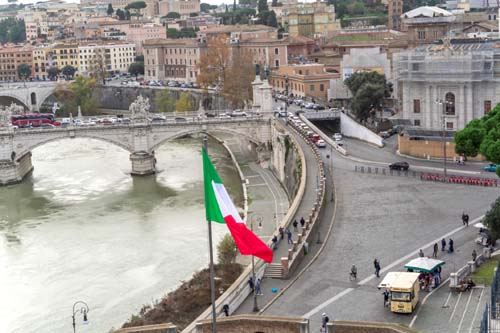Italy lifts passenger locator form requirement, extends other covid-19 entry measures

Rome: The Italian Ministry of Health has announced that the requirement to complete a Passenger Locator Form for entering the country has been abolished as of last Sunday, May 1, while the rest of the existing entry restrictions have been prolonged until the end of the month.
In an ordinance published in the Italian official gazette on April 28, the Ministry notes that due to the current Coronavirus situation in Italy, as well as in other EU and non-EU countries, the Coronavirus rules of entry will be extended until May 31.
The decision is based on a recommendation of the Directorate-General for Health Prevention sent to the Ministry on April 26, 2022, which asserts that despite the cessation of the state of emergency in Italy, there is still a need to combat the spread of the Coronavirus pandemic.
“The global epidemiological situation which still calls for keeping the precautionary measures as in some EU and non-EU countries (including Italy) the notification rates continue to remain high, and as such represent the need to maintain the current regime of measures for entry into Italy,” the recommendation says.
Thus, travellers from both the EU and non-EU countries will continue to be required to show one of the following certificates in order to be able to enter Italy:
Certificate of vaccination against COVID-19
Only travellers who have been vaccinated in the last 270 days with the final dose of a COVID vaccine and those who have received and third/booster shot are eligible to enter under the status of a vaccinated traveller.
Moreover, Italy recognizes as valid vaccines for entry only the following: Pfizer-BioNTech, Moderna, Vaxzevria, Janssen (Johnson & Johnson), Nuvaxovid (Novavax), as well as vaccines considered equivalent by Italian legislation (Covishield, Fiocruz, R-Covi).
Travellers who have fallen ill in the last 180 days with COVID-19 and have recovered from it can also enter the country without any further restrictions. The test confirming the traveller has been previously infected must have been performed by a professional.
For those who are neither vaccinated against COVID-19 nor recovered from it, it is possible to enter with negative COVID-19 test results. Accepted are only PCR tests performed within 72 hours before arrival in Italy and rapid antigen tests performed within 48 hours.
Those who hold none of the three certificates listed above will have to quarantine for a period of five days upon arrival in Italy. They will be able to leave isolation only after this period ends, given that they also test negative for COVID-19.
Updating the Coronavirus rules, Italy has also abolished the requirement to wear a mask in the majority of places, including here hotels, supermarkets, bars, museums and more. The requirement to wear a mask has, however, been extended for public transport, hospitals, nursing homes, concerts and indoor sporting events, etc.
At the same time, Italy has also lifted the requirement to present a COVID-19 Green Health Pass for entering museums, pubs, hotels, and other activities and services. The changes are expected to lure more travellers into the country this summer, while the country does not exclude the possibility of removing more restrictions before the beginning of the tourist season.





